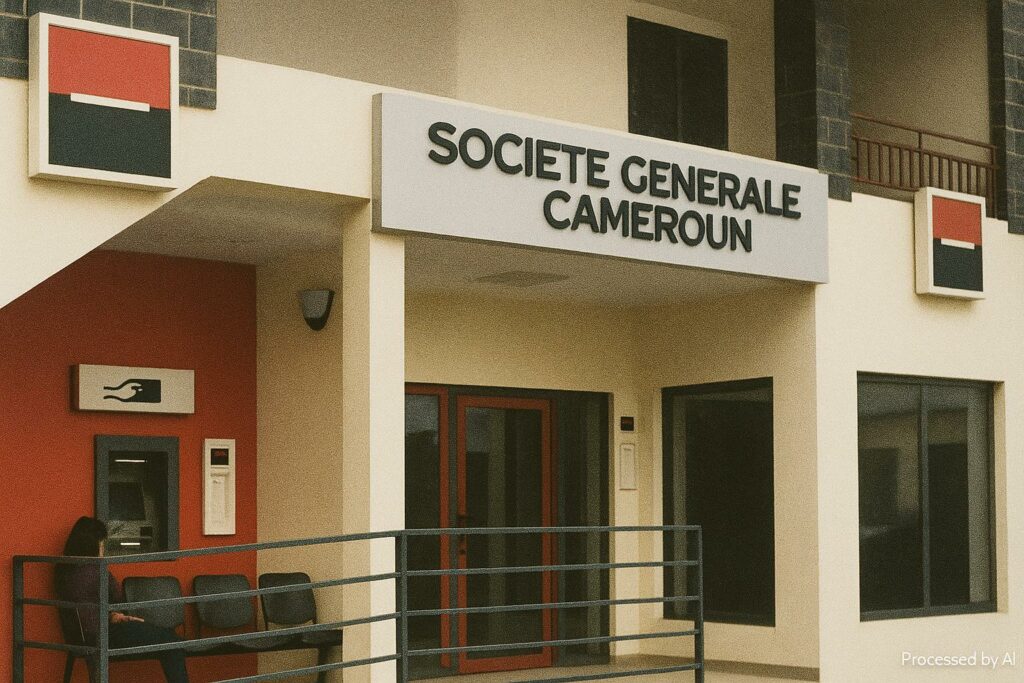Parisian Retreat Meets Yaoundé Opportunity
The French banking group Société Générale, engaged since 2023 in a broad realignment of its African portfolio, has agreed to transfer its 83.68 % stake in Société Générale Cameroun to the Cameroonian State. Finance Minister Louis-Paul Motaze, by formalising the accord on 15 July 2025, opened the door to new investors that could reinforce the local franchise while accompanying Yaoundé’s ambition to deepen financial inclusion. The split between a strategic retreat by a European lender and the assertive posture of Cameroon’s authorities creates an investment tableau that regional and continental actors are eager to occupy.
BGFIBank’s Expansionist Itinerary
Henri-Claude Oyima, chairman of BGFIBank, hinted as early as May 2024 that ‘every opportunity arising from Société Générale commands our attention’. His group, headquartered in Libreville but substantially capitalised through French and Gabonese interests, has made calculated forays into markets vacated by Paris. The precedent is the 2023 acquisition of Société Générale Congo, executed after a right of pre-emption granted to Brazzaville. Diplomatic observers in both capitals note that the deal bolstered Gabon–Congo economic convergence and earned tacit approval from CEMAC regulators (Les Dépêches de Brazzaville, June 2024). The prospect of replicating that success in Douala strengthens BGFIBank’s candidacy, especially given its familiarity with Société Générale’s legacy systems and risk culture.
NSIA Bank’s Insurance-Bank Symbiosis
Jean-Kacou Diagou’s NSIA Group, originally rooted in Abidjan’s insurance market, has spent the last decade weaving a bancassurance model across West Africa. The CEO’s discreet visit to Yaoundé in mid-June 2025, confirmed by officials at Cameroon’s Treasury Department, underscores the group’s appetite for a foothold in Central Africa that matches its status in the UEMOA zone (Agence Côte d’Ivoire Presse, 18 June 2025). Analysts at the African Development Bank argue that NSIA’s actuarial expertise could diversify Cameroon’s retail products, particularly micro-savings and health-linked coverage, areas still underserved despite a banking penetration rate hovering around 20 %.
Zenith Bank’s West-to-Central Gambit
Listed on the Lagos and London stock exchanges, Zenith Bank embodies Nigeria’s outward-looking corporate momentum. Its interest in Société Générale Cameroun aligns with Abuja’s broader strategy of projecting financial power beyond ECOWAS frontiers. Fitch Ratings in a March 2025 note highlighted Zenith’s robust capital adequacy ratio of 21 % and its capacity to fund regional acquisitions without compromising Tier 1 buffers. For Cameroonian authorities, Zenith offers immediate foreign-currency liquidity and potential integration with Nigeria’s burgeoning fintech scene. However, some CEMAC regulators caution that a dominant Nigerian presence might shift competitive dynamics, necessitating vigilant anti-money-laundering oversight.
Regulatory Compass and Geopolitical Undercurrents
BEAC, the Central Bank for Central African States, must authorise any transfer exceeding 10 % of a credit institution’s capital. Its Monetary Policy Committee, scheduled to convene in September 2025, will therefore occupy centre stage. Beyond prudential ratios, the committee will weigh geopolitical parameters: Gabon’s search for post-OPEC diversification, Côte d’Ivoire’s francophone leadership ambitions and Nigeria’s continental reach. Diplomats in Yaoundé whisper that France, though publicly supportive of open competition, informally prefers an investor capable of preserving correspondent-bank ties with Paris. This calculus may explain why BGFIBank, despite its Gabonese roots, maintains a board heavy with French executives.
Implications for Regional Financial Architecture
The impending transaction could recalibrate Central Africa’s banking hierarchy. Société Générale Cameroun controls close to 25 % of corporate deposits and channels a substantial portion of Eurobond proceeds into infrastructure projects. A shift in ownership therefore resonates beyond Cameroon’s borders, influencing sovereign debt placements, trade-finance corridors and the rollout of digital-payment interoperability within CEMAC. Should the winner deploy fresh capital, local SMEs may gain improved access to credit, supporting the Government’s 2023-2030 National Development Strategy. Conversely, an acquisition financed mainly through leverage could compress the bank’s lending headroom, a scenario that BEAC is likely to scrutinise.
Measured Outlook for Stakeholders
With due diligence now under way, officials anticipate a shortlist by late October 2025, followed by final approval before year-end. Market sentiment in Douala remains cautiously optimistic, buoyed by expectations of technology upgrades and expanded branch networks. Yet union representatives at Société Générale Cameroun request assurances on staff retention, drawing lessons from recent restructurings in Dakar and Lomé (African Labour Monitor, May 2025). For Yaoundé’s policymakers, the overriding objective is to keep strategic decision-making within a framework consistent with national priorities while signalling to international partners that Cameroon remains open, stable and reform-oriented.

